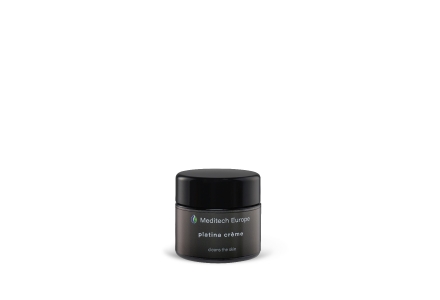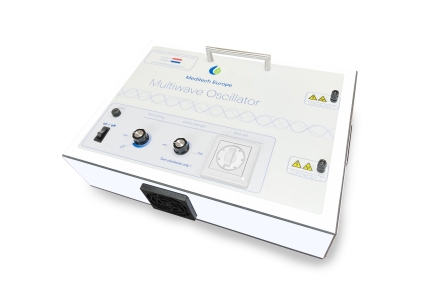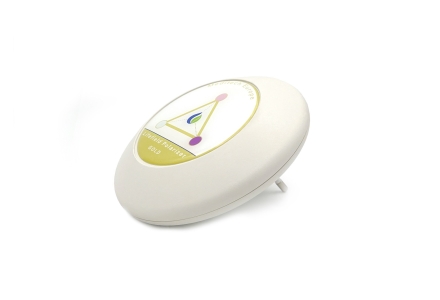
Self-esteem plays a crucial role in a person's life. It affects not only our mental state but also our physical health. People with high self-esteem rarely face health problems and often make better choices regarding sports, nutrition, and other activities. In this comprehensive blog, we will explore the connection between self-esteem and health, as well as insights from Germanic Medicine on the impact of experiences, events, and traumas on self-esteem and the resulting health consequences.
What is Self-Esteem?
Self-esteem, also known as self-worth, refers to the degree to which a person values and respects themselves. It encompasses a combination of self-confidence, self-respect, and a positive self-image. People with high self-esteem feel competent and worthy, while those with low self-esteem often struggle with feelings of inadequacy and self-doubt.
Components of Self-Esteem:
Self-Confidence: Belief in one's abilities and skills.
Self-Respect: The feeling of worthiness and respect for oneself.
Self-Image: How a person sees and values themselves.
Self-Esteem and Health
There is a strong connection between self-esteem and health. People with high self-esteem generally have better physical and mental health. Let's delve into this connection in detail.
Physical Health
People with high self-esteem often lead healthier lifestyles. They make conscious choices that promote their well-being, such as regular exercise, a balanced diet, and avoiding harmful habits like smoking and excessive alcohol consumption.
Sports and Exercise:
Regular exercise is one of the most important factors for good health. People with high self-esteem are more likely to stay active and engage in sports. This is because they value themselves and want to invest in their health and well-being. Exercise not only helps maintain a healthy weight but also improves cardiovascular health, strengthens muscles and bones, and reduces the risk of chronic diseases such as diabetes and heart disease.
Nutrition:
A balanced diet is essential for good health. People with high self-esteem are inclined to make more conscious choices regarding their nutrition. They often opt for nutritious, unprocessed foods like vegetables, fruits, whole grains, and lean proteins. This helps maintain a healthy weight, improves energy levels, and reduces the risk of nutrition-related diseases.
Mental Health
Self-esteem also plays a crucial role in mental health. People with high self-esteem generally have better mental states and are less prone to psychological disorders such as depression and anxiety.
Stress Management:
People with high self-esteem have better coping mechanisms for dealing with stress. They are able to handle problems effectively and have a positive outlook on life. This reduces the likelihood of stress-related health issues such as high blood pressure, heart disease, and sleep disorders.
Emotional Well-being:
Self-esteem directly impacts a person's emotional well-being. People with high self-esteem feel happier and more satisfied with their lives. They have stronger relationships and a larger social network, contributing to better mental health.
The Connection Between Self-Esteem and the Immune System
An interesting and often overlooked connection is between self-esteem and the immune system. Research has shown that self-esteem can influence the functioning of the immune system.
Stress and the Immune System:
Chronic stress, often a result of low self-esteem, can weaken the immune system. When a person is stressed, the body produces stress hormones such as cortisol. Prolonged exposure to high levels of cortisol can diminish the immune response, making the body more susceptible to infections and diseases.
Positive Self-Image and Immune Function:
On the other hand, a positive self-image and high self-esteem can strengthen the immune system. People who value themselves and think positively about themselves have lower stress levels, better overall health and a better Cell Health. This promotes a strong and efficient immune system, making the body better able to fight off diseases and infections.
Insights from Germanic Medicine
Germanic Medicine offers valuable insights into how experiences, events, and traumas can affect self-esteem and the resulting health problems. This alternative approach to medicine, developed by Dr. Ryke Geerd Hamer, posits that emotional conflicts and traumas are the cause of physical diseases.
Basic Principles of Germanic Medicine:
The Five Biological Laws: These laws describe how diseases arise and develop in response to emotional conflicts.
Conflict Shock (DHS): A sudden, unexpected emotional shock that triggers a biological reaction in the body.
Two-Phase Model: Every disease progresses in two phases: a conflict-active phase and a healing phase.
Impact of Traumas on Self-Esteem:
According to Germanic Medicine, traumas and emotional conflicts can negatively affect self-esteem, which in turn can cause physical health problems.
Examples of Traumas and Health:
Loss of a Loved One: This can lead to feelings of worthlessness and depression, which can weaken immune function and increase the risk of diseases.
Bullying and Abuse: These experiences can severely damage self-esteem and lead to long-term psychological and physical health problems.
Work-Related Stress: Chronic stress at the workplace can undermine self-esteem and contribute to a range of health problems, including cardiovascular diseases and mental disorders.
Recovery and Healing:
Germanic Medicine emphasizes the importance of resolving emotional conflicts for recovery and healing. Restoring self-esteem through therapy, self-care, and positive experiences can have a significant impact on health.
Methods to Strengthen Self-Esteem:
Therapy and Counseling: Professional help can assist in processing traumas and improving self-esteem.
Mindfulness and Meditation: These techniques can reduce stress and promote a positive self-image.
Social Support: Strong relationships and a supportive network can contribute to higher self-esteem and better health.
Self-Care: Taking time for oneself, setting boundaries, and looking after physical well-being are crucial steps to strengthen self-esteem.
Conclusion
Self-esteem plays an essential role in both the mental and physical health of a person. People with high self-esteem make healthier life choices, have a better functioning immune system, and experience less stress. Germanic Medicine offers a unique perspective on how emotional conflicts and traumas can affect self-esteem and lead to health problems. By paying attention to and strengthening our self-esteem, we can make a significant difference in our overall well-being and health.
At Meditech Europe, we understand the importance of a holistic approach to health and well-being. We strive to provide our customers with the best products and information to improve their health. By investing in your self-esteem and well-being, you can lead a healthier and happier life.









